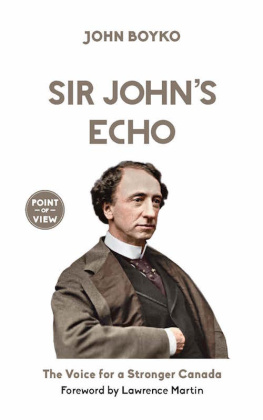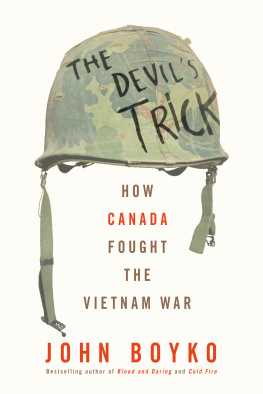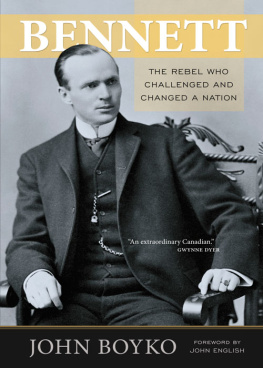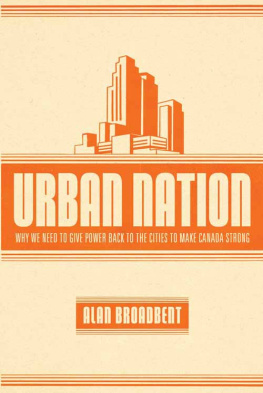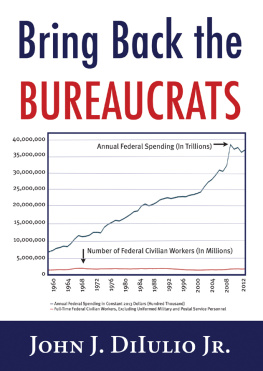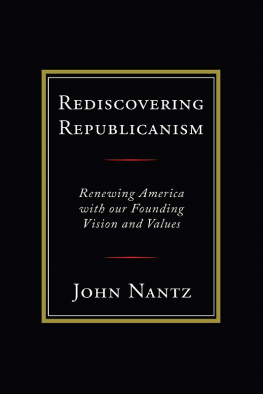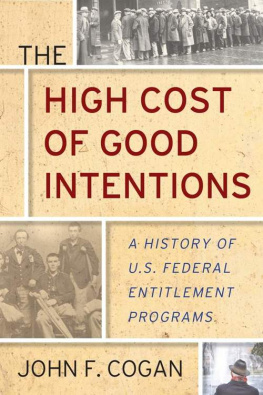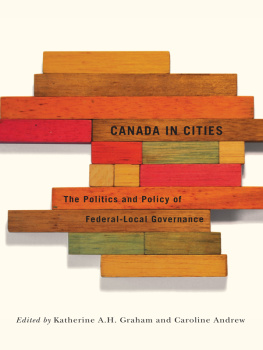Publishers Message for
SIR JOHNS ECHO
To shed light on todays cultural, social, economic, and political issues that are shaping our future as Canadians, Dundurns Point of View Books offer readers the informed opinions of knowledgeable individuals.
Whatever the topic, the author of a Point of View book is someone weve invited to address a vital topic because their front-line experience, arising from personal immersion in the issue, gives readers an engaging perspective, even though a reader may not ultimately reach all the same conclusions as the author.
Our publishing house is committed to framing the hard choices facing Canadians in a way that will spur democratic debate in our country. For over forty years, Dundurn has been defining Canada for Canadians. Now our Point of View Books , under the direction of general editor J. Patrick Boyer, take us a further step on this journey of national discovery.
Each author of a Point of View book has an important message, and a definite point of view about an issue close to their heart. Some Point of View Books will resemble manifestos for action, others will shed light on a crucial subject from an alternative perspective, and a few will be concise statements of a timely case needing to be clearly made.
But whatever the topic or whomever the author, all these titles will be eye-openers for Canadians, engaging issues that matter to us as citizens.
J. Kirk Howard
President
Dundurn Press
A Note from the General Editor
Historian John Boyko and I started talking at TVOs entrance as he was arriving to be interviewed by Steve Paikin about Cold Fire: Kennedys Northern Front , a compelling re-examinationof turning points in Canadian-Americanrelations when John F. Kennedy was U.S. president and John G. Diefenbaker Canadas prime minister.
Id been impressed by Boykos talent for extracting fresh insights from our history, skill in reconstructing events with vivacious writing, and wisdom about presenting a revisionists perspective on our past. Cold Fire , his sixth book, was being critically acclaimed, as had been Blood and Daring: How Canada Fought the American Civil War and Forged a Nation . Before that, hed offered us a compelling reappraisal of Canadas much misunderstood eleventh prime minister, with Bennett: The Rebel Who Challenged and Changed a Nation .
As his students at Lakefield College and his readers appreciate, John Boykos artful writing and rhythmic pace bring history to life. He invests constitutional battles, court rulings, and pension plans as well as the drama of wars, strikes, and insurrections with coherent meaning. Sir Johns Echo pursues a storyline anchored in John Macdonalds design for a strong national government. The author creates a context within which a decades-longtumble of seemingly disconnected events, many of them loosely grouped under the rubric federal-provincialrelations or the loftier yet more obtuse term constitutional negotiations, are connected in an intelligible new way, thereby assuming fresh meaning.
Dundurns Point of View books are intended to contribute to our national dialogue about issues that affect our future. Now at Confederations150-yearmark, this long echo through time gives Canadians renewed inspiration in the great results that can flow, as John Boyko shows, when we embrace constructive responsibility for our country.
J. Patrick Boyer
General Editor
Point of View Books
Other Point of View Titles
Irresponsible Government
by Brent Rathgeber
Foreword by Andrew Coyne
Time Bomb
by Douglas L. Bland
Foreword by Bonnie Butlin
Two Freedoms
by Hugh Segal
Foreword by Tom Axworthy
Off the Street
by W.A. Bogart
Foreword by Sukanya Pillay
Charlie Foxtrot
by Kim Richard Nossal
Foreword by Ferry de Kerckhove
Dedication
This book is dedicated to Kenzie and Anna, with unreserved confidence in them and the resilient, united country they are inheriting.
Foreword
T here is a widespread lament as we look around us today at the degree of division and political polarization in Europe and in the United States born in 2016 with the American presidential election, the success of Brexit, and the rise of Marine Le Pen in France. Faith in national governments, in national institutions, in multiculturalism has diminished at a rapid pace. White nationalism is on the move.
In Canada we find a welcome exception. We find our union as woven as it has ever been even more unified as it celebrates its 150th anniversary than it was 50 years ago in 1967, the glowing year of the centennial when all seemed well but when Quebec secessionism was ominously finding favour.
Canada is the recipient of fulsome appraisals in the international press for bucking the trend, for moving forward in an open, progressive, multi-ethnic spirit. The divergence between what is happening here and elsewhere puts a greater premium on knowing how we reached this plateau, how the country was built, and how old battles were won. The vastness of the country makes the story all the more compelling. One need only look at the tumultuous histories of other massive territories such as Russia, China, and the United States none of them held together with less grief than this one.
Our story can be written from various angles, but there is none more revealing than the approach taken in Sir Johns Echo , it being the high-stakes history of the exercise of federal power versus provincial power.
The nation survived challenges to its unity from Quebec and from Alberta in more recent times, and many other challenges in preceding decades. In the past 25 years, peace has been found, the West having been brought in by the Stephen Harper government, the Quebec question having been put very much on the back burner after the 1995 razor-thin referendum victory of the federal side.
The template for success was set by the political savvy of John A. Macdonald. It has been his far-sighted formula, as John Boyko convincingly contends in this book, that has served as the glue of the nation. Macdonald and the other founders forged a federal state, as the author puts it, with power resting overwhelmingly at the centre. The key to its successful evolution has resided in that centres capacity to maintain and exercise that power in the face of myriad challenges from the provinces and, in the early decades, Great Britain.
Sir Johns Echo weaves chronologically through the story of the interplay of the federal and provincial tug-of -war. As is seen today whenever the Liberal government wrestles with the provinces on questions of a national health-care accord, pipelines, and environmental issues, it is a never-ending narrative, one continually testing the national fibre.
In facing these challenges, the Trudeau government would do well to bear in mind the precedents. Many offer sage counsel on the art of willpower, compromise, and concession. The powers provided Ottawa at the dawn of Confederation have usually proved just sufficient enough while engendering no shortage of bitterness in the provincial capitals to hold sway.
Macdonalds acumen was in first recognizing, as he could well do given the astonishing carnage of the American Civil War, that the U.S. Constitution was too generous in its bestowal of powers to the states. Canada would reverse the American error by strengthening the general government and conferring on the provincial bodies only such powers as may be required for local purposes.

